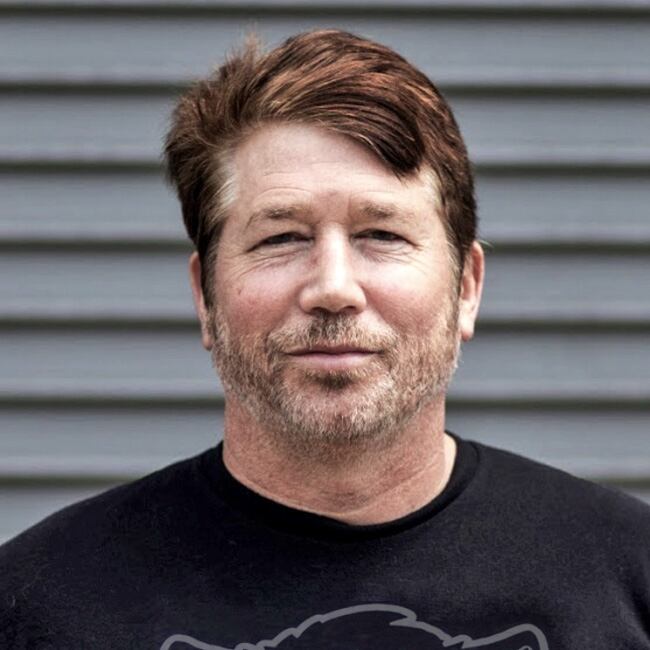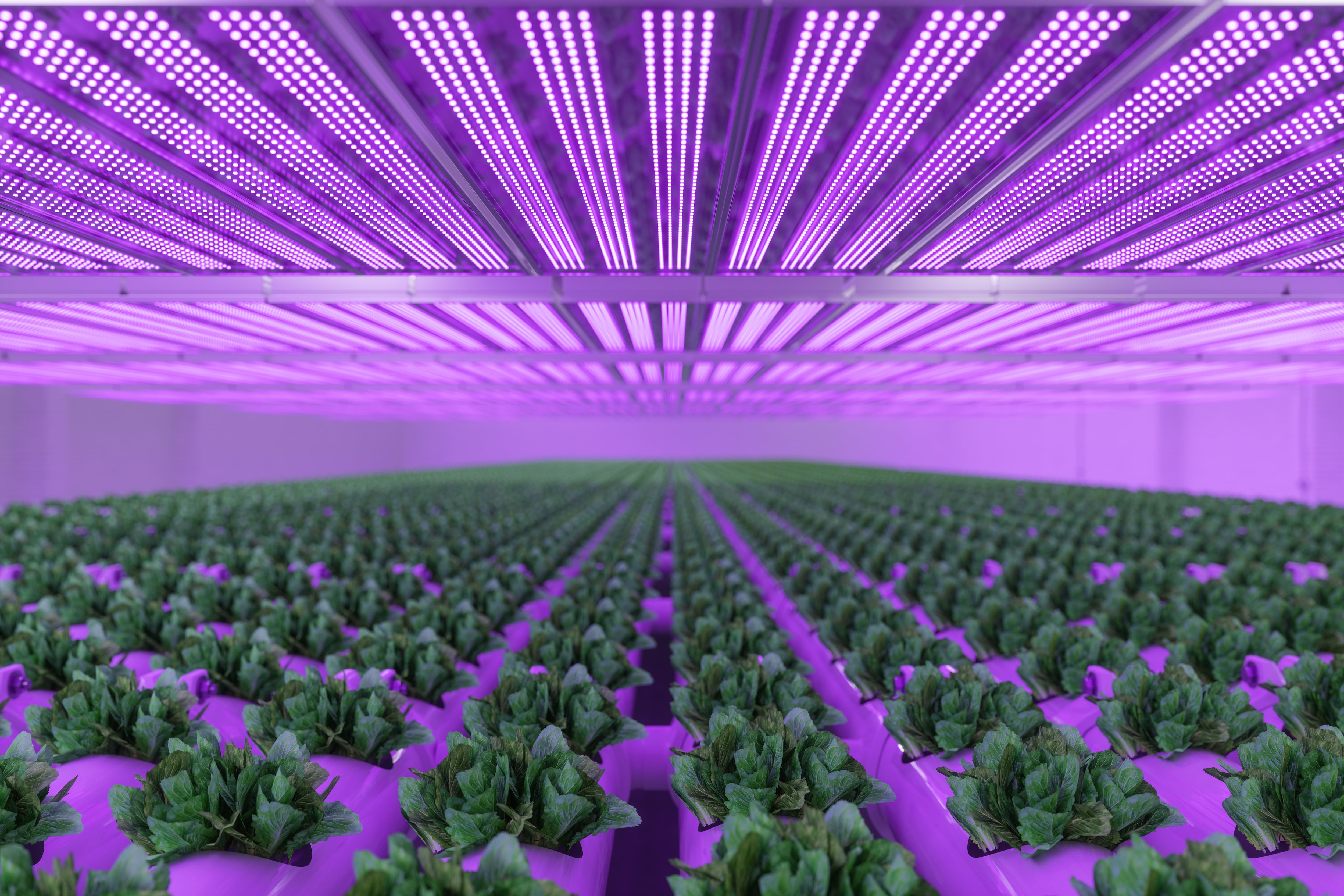Bronson describes himself as contrarian investor. “I’m trying to invest where other people are not looking and don’t realise there are opportunities,” he tells AgTechNavigator. “Companies that don’t have categories yet.”
Bronson is general partner at SOSV, one of the most active investors in agtech with over $1.6 billion in assets under management. Last year it closed its fifth core fund, totalling $306 million.
SOSV invests in a host of agtech start-ups, from seed to growth stage, through its various accelerator programmes. One of these – of which Bronson is managing director – is IndieBio, the world’s largest biotech accelerator and the creator of 136 companies across human and planetary health, including over 40 companies in the food and agriculture space.
‘I like to shock people’
Bronson is a journalist and author by trade. His resume boasts nine US national awards for his science journalism. He is the author of seven bestselling books that are available in 28 languages worldwide. His biggest is ‘What Should I Do with My Life?’, a number one New York Times bestseller that remained in the top 10 for nine months.
Bronson has clearly done plenty with his life. Why then is he so currently obsessed with, in words, “thinking beyond what the world is telling us the solutions are, and trying to find answers to that”?
“Because I like it,” he replies. “I like to shock and surprise people. I love to prove people wrong, that’s in my character.”
The three unicorns in SOSV’s portfolio are perhaps evidence of this: animal-free dairy disruptor Perfect Day, Chilean plant-based food brand NotCo and cultured meat pioneer Upside Foods.
Green ammonia is a newer hot trend in ag, believes Bronson. ‘Off the radar’ companies SOSV is backing include a start-up that uses waste blood from meat processors to produce, via a patented fermentation process, nitrate-free ammonia fertiliser for organic growers.
The company, California Organic, believes it the only in the world able to provide organic farmers an ammonia fertiliser rather than a nitrate one. “Most ag investors don’t touch organic even though it’s big and it’s growing,” says Bronson. Concerning California Organic, “there’s nothing like it,” he grins. “It’s a category to itself.”
IndieBio is also supporting California-based Farm Minerals which believes it can slash the cost of fertilisers in half by making nutrients bound into organic carbon “snowflakes”.
“There’s nothing like it because it’s a Haber bosh-free process,” Bronson tells us. “The nutrients – nitrogen, phosphorus, and potassium – but also calcium and sulphur for polyhalides are all bound to carbon snowflakes. The result is we can undercut the cost of Haber bosh fertiliser by half. That sounds impossible but the reason is the product is 1,000 times less atomic mass. So we make a lot less of it but it’s just as effective.”
Another start-up in the portfolio is South Korea’s CeresWaves. Via its ‘Energy Pang’ device – billed as the world’s first ‘electrofertilizer’ – it is using ultra-low solar power energy to boost crop health and yield.
The wavelengths omitted by the device help transpiration of water through the plant, increasing yield around 20% and phytonutrient density by around 30%, the company claims.

Divergent thinking
Bronson’s investment thesis – largely established on thinking outside the box – is crucial, he believes, as the agtech sector navigates a recalibrating VC market.
The problems are now notorious: deal value and deal counts fell 25.6% and 24.3% respectively last year, as did exit activity.
In this landscape, VCs and founders are “absolutely” asking themselves the question of whether the traditional VC model is the best fit for the agtech sector, admits Bronson.
“The whole category is being questioned,” he says. “The number of players purely doing ag has shrunk dramatically in the last two years. You’re talking about a much smaller universe and smaller total pot of money.”
The onus on investors therefore is to be laser-focussed on those individual companies that are venture investible – a lesson Bronson learned well before the bubble burst on the glory days of 2021.
“We’ve been around long enough that we had enjoyed a lot of companies that had gone up a lot in value from 2014 to 2020,” he explains.
But in that very portfolio of success, SOSV saw fundamental financial weakness. “We saw high capex needs, which means high fundraising risk. So amongst a lot of successful companies, we still saw a thesis to invest differentially. Starting in 2021 we would only invest in low capex companies that can get to market in under two years and that have higher margins. It sounds so simple, but we were just ruthless about looking for that and perhaps taking risk because they were low capex.”
Why there will be no ‘Google of agtech’
This focus on low capex and low fundraising means start-ups are more likely to exit through a merger and acquisition rather than an Initial Public Offering, which are notoriously more timely and costly.
For this reason, he predicts: “There’s not going to be a Google of agtech and Apple of the future of food and a Facebook of agri-food climate impact. I believe there’s going to be 1,000 companies each of which are worth one billion and they are going to be acquired.”
Under these circumstances, his advice for founders is to have a value proposition where it could be rapidly adopted.
“Once you start growing and once you’ve commercialised, you have to grow fast if you’re gonna stay in venture,” he muses. “Venture is the most expensive capital in the world, so if you can use other sources of capital, great.”
SOSV also supports corporate partnerships to serve as a form of validation for start-ups, potentially leading to greater success. “l love to bring corporate partners on to our cap table more than maybe any other VC,” claims Bronson.
“Corporates don’t invest as much as VCs, but I like to know our company has a product that people want, and I like to build it with partners.”
An objective outsider
Ultimately, though, Bronson’s fixation on finding those ‘companies without a category’ marks him out as something of an objective outsider, unlikely to get stuck in cognitive loop.
“I feel a little bit like as a venture industry we aren’t really tracking some of the biggest causes of problems in agri-food stress,” he says. “I feel like there’s incredible technologies that are not in those ‘approved buckets’ or ‘approved investable sectors’. Those aren’t necessarily the best places to be investing.”





